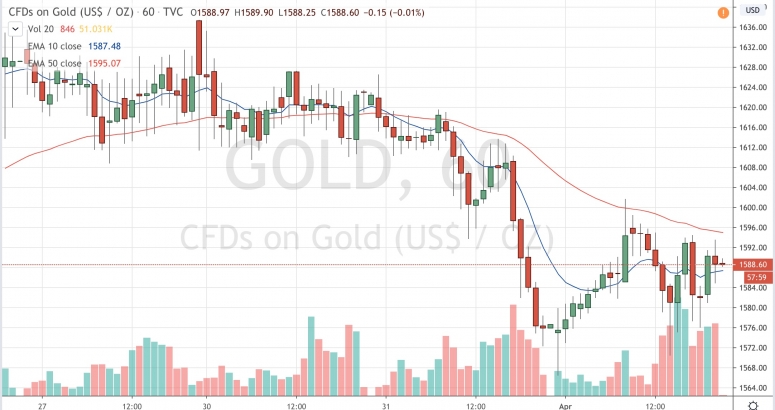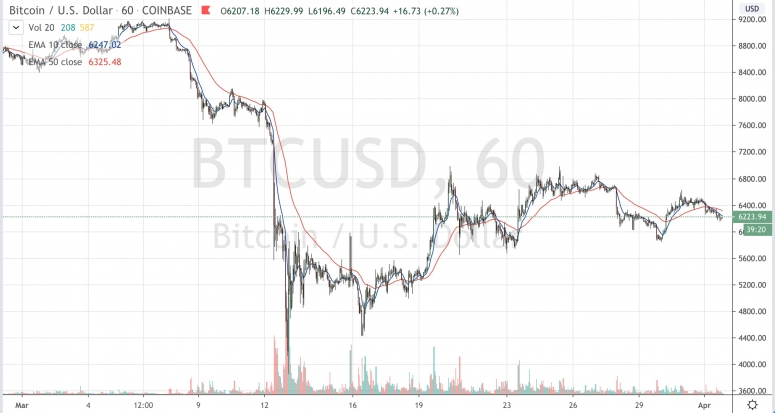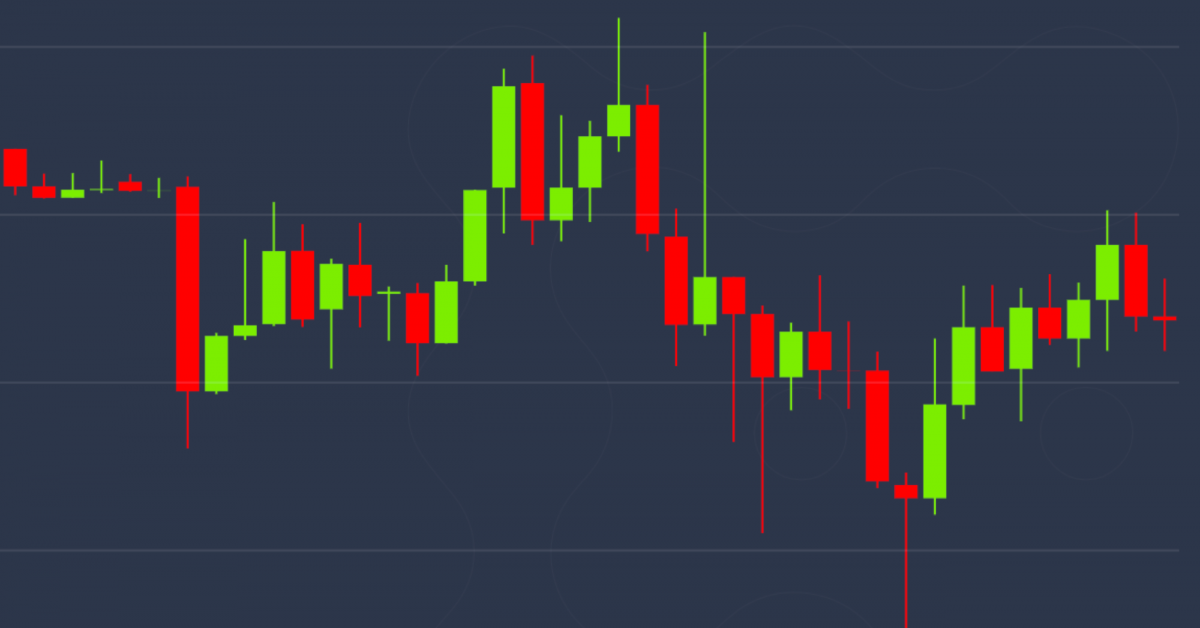Bitcoin and ether are trending down as traditional markets closed in the red Wednesday.
On a 24-hour basis, bitcoin (BTC) was in the red 4 percent Wednesday afternoon Eastern time and ether (ETH) was down 3 percent. Most other cryptocurrencies were off as well.
Notable assets down in the dumps on CoinDesk’s big board include NEO (NEO) in the red 5 percent, bitcoin SV (BSV) slipping 4 percent and IOTA (IOTA), down 4 percent. All price changes are in the past 24 hours as of 20:00 UTC (4:00 p.m. EDT) Wednesday.
In the traditional markets, Japan’s Nikkei 225 index closed down 4.5 percent. Europe’s FTSE 100 ended the day in the red 2.7 percent. In the U.S., the S&P 500 closed New York’s trading day down 4.4 percent.
Traders continue to have concerns about coronavirus’ impact on the world economy, as the World Health Organization says inflections will surpass one million people causing 50,000 total deaths globally in a matter of days.
After holding steady Tuesday, bitcoin slipped from $6,450 at 00:00 UTC Wednesday to as low as $6,160 around 17:00 UTC on exchanges such as Coinbase. An outstanding question is how long the cryptocurrency will continue to track traditional investments during this period of turmoil.
“Bitcoin tends to have periods of spurious correlation with macro risk, but it is not statistically significant,” said Darius Sit, managing partner at crypto fund QCP Capital. “At the time of market panic even gold was correlated with equities but that is starting to break as well.”
Indeed, gold rallied to start Wednesday, and though it did come under some sell pressure it is up less than a percent on the day as of 20:00 UTC (4 p.m. EDT).

“Gold is one of the best-performing assets in Q1. Gold rose 2.95 percent, which is a great result compared to other asset classes which faced losses,” said, Nemo Qin, an analyst at brokerage eToro.
Where does crypto go from here? Some think the worst is over after last month’s collapse of bitcoin, which briefly dipped below the $4,000 level March 13.

Despite that bloodbath, the first quarter saw bitcoin perform better than the S&P 500 index even though it was still in the red 10 percent for the period.
“For what it’s worth, we believe the lows are behind us in this new macro regime and that expectations have been heavily subdued,” said Vishal Shah, founder of crypto derivatives exchange Alpha5. “At worst, this should lead to the creation of price troughs not too far from here, and at best, provide sustained fuel for a move higher.”
Another open question is whether the upcoming halving of bitcoin block rewards will have its usual effect of boosting the price. For one thing, the options market is expressing pessimism about the halving, expected to occur in mid-May.
See also: Bitcoin Halving, Explained
In theory, by reducing the amount new bitcoins released into circulation every 10 minutes or so, the halving should juice the price, assuming demand stays constant. But the unusual turbulence, and the way bitcoin has reacted to it so far, calls that assumption into question.
“It’s still a tiny space with low liquidity all over crypto. I honestly have my eyes on hashrate and think a lot about how the halving effect will look this time,” said Henrik Kugelberg, a Sweden-based over-the-counter trader.
In fact, a large U.S. cryptocurrency miner recently shut off its machines, claiming unprofitability at current price levels.
Despite all this, some traders still have confidence in crypto, expecting it to decouple from traditional markets at some point whenever things settle.
“I think when there is market panic and deleveraging going on, it’s normal for BTC as a fringe asset to follow the general trend. But once markets are calmer it can start to move according to its own narrative,” said QCP’s Sit.
Disclosure Read More
The leader in blockchain news, CoinDesk is a media outlet that strives for the highest journalistic standards and abides by a strict set of editorial policies. CoinDesk is an independent operating subsidiary of Digital Currency Group, which invests in cryptocurrencies and blockchain startups.


